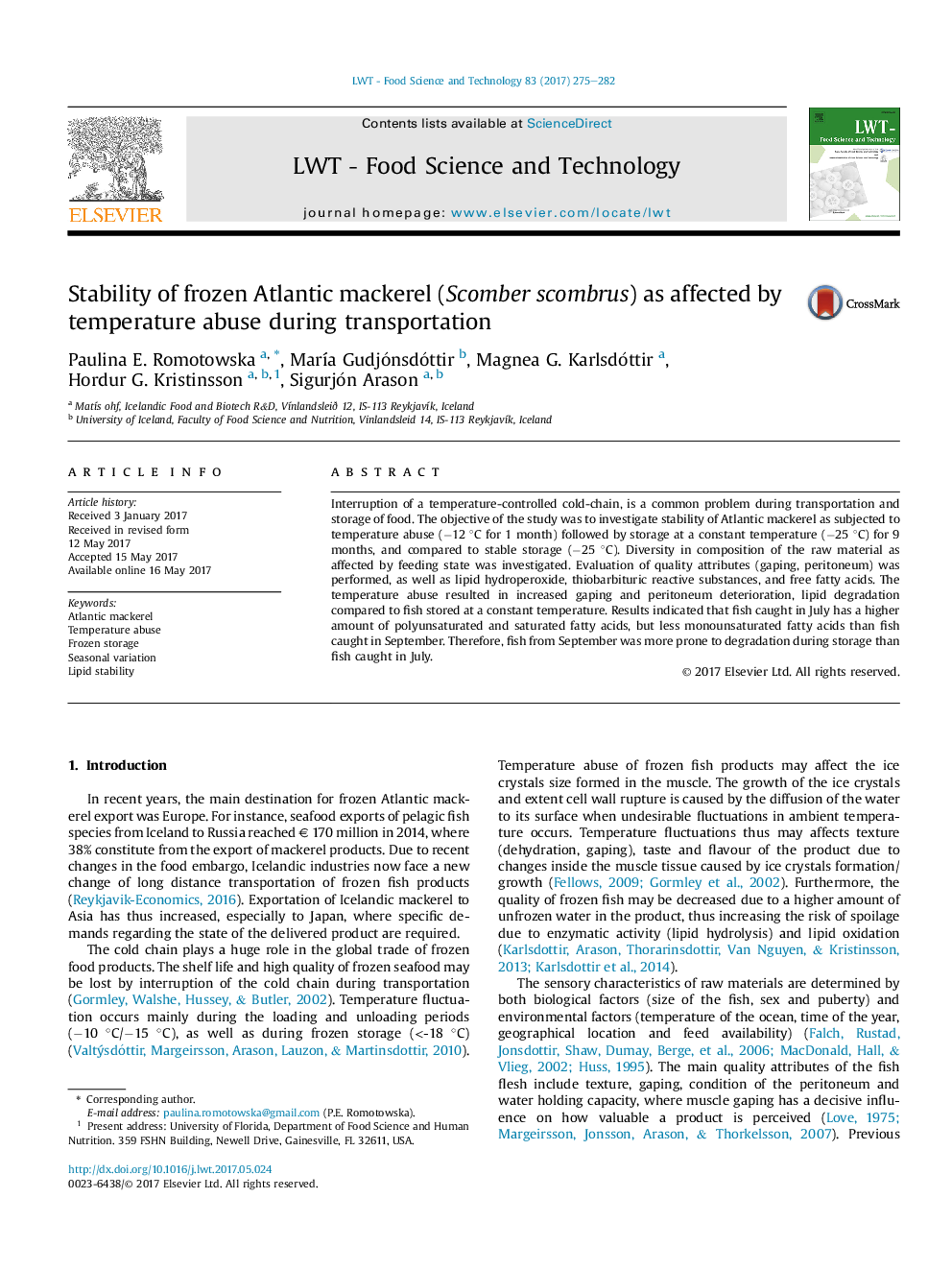| Article ID | Journal | Published Year | Pages | File Type |
|---|---|---|---|---|
| 5769099 | LWT - Food Science and Technology | 2017 | 8 Pages |
â¢Atlantic mackerel caught during heavy feeding period was analysed.â¢Changes in fatty acid composition were influenced by seasonal variation.â¢Lipid stability was affected by temperature abuse of frozen mackerel.â¢Temperature abuse resulted in increased gaping and peritoneum deterioration.
Interruption of a temperature-controlled cold-chain, is a common problem during transportation and storage of food. The objective of the study was to investigate stability of Atlantic mackerel as subjected to temperature abuse (â12 °C for 1 month) followed by storage at a constant temperature (â25 °C) for 9 months, and compared to stable storage (â25 °C). Diversity in composition of the raw material as affected by feeding state was investigated. Evaluation of quality attributes (gaping, peritoneum) was performed, as well as lipid hydroperoxide, thiobarbituric reactive substances, and free fatty acids. The temperature abuse resulted in increased gaping and peritoneum deterioration, lipid degradation compared to fish stored at a constant temperature. Results indicated that fish caught in July has a higher amount of polyunsaturated and saturated fatty acids, but less monounsaturated fatty acids than fish caught in September. Therefore, fish from September was more prone to degradation during storage than fish caught in July.
